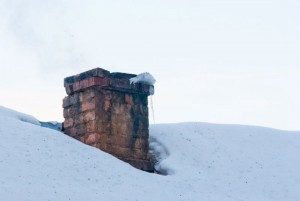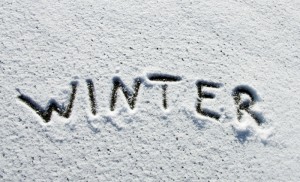Have Your Heating System Inspected After Cold Weather
Spring has sprung in Suffolk County! While you are busy breaking out your shorts and sandals and prepping your home for outdoor entertaining with family and friends, make sure your spring cleaning checklist includes having your chimney and heating system inspected. We had a long, cold winter this year and the type of weather we endured can take its toll on your chimney. At Chief Chimney Services we are happy to come to your home and do a thorough chimney inspection.
Why Have Your Chimney Inspected After Winter?
During winter a lot of things are happening outside that can affect what happens to your chimney on the inside. For example, when the weather freezes and thaws, this can cause the mortar in your chimney to expand and contract. The result of expanding mortar is often cracked and broken bricks inside your chimney.
A lot of simple masonry damage can remedied with some tuckpointing once the weather breaks. A professional chimney company can come to your home and tuckpoint, or force fresh mortar into the joints of your bricks in order to preserve the integrity of the chimney and prevent further breakage.
Another way winter weather can take its toll on your chimney is by water damage. If your chimney has not been properly capped, or if your chimney cap is broken then you may notice some water damage inside your chimney. Water can cause creosote build-up and can cause your fireplace or woodstove to work ineffectively. Having your chimney inspected after the long winter months can make sure any water damage is not extensive and can also remedy the problem before it becomes too serious.
During winter months, critters like birds and squirrels look for any place warm and dry to call home. Your chimney may have become home to these types of pests when the cold weather was here, and a professional chimney inspection and sweeping can remove these critters so they don’t wreak havoc on your chimney.
Hiring A Certified Chimney Sweep
The best way to prevent chimney damage is to have a professional, certified chimney sweeping company come to your home and take a look at your chimney. CSIA certified chimney sweeps are held to the highest educational standards in order to offer premium chimney sweeping services. Our certified chimney sweeps will come to your home and provide a thorough inspection and sweeping of your chimney just in time for the warm weather. Some things our technicians look for include:
- Rusting components such as dampers and flues
- Sticks, leaves and other debris
- Bird and squirrel nests
- Brick and mortar damage
- Shifting chimney structures
Contact Chief Chimney Services in Suffolk County today for more information about how we can inspect your chimney and fireplace as part of your spring cleaning. Tackling chimney care as part of your home maintenance can keep the integrity of your chimney intact, which can make starting fires in your wood-burning heating appliance that much easier next winter. Call the professionals and have your chimney inspected and swept by the best in the business today.


